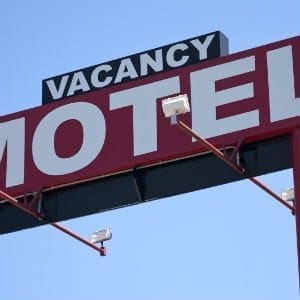 A vital aspect of providing high quality service in the hotel sector is the human resource management (HRM) system employed in the hotels concerned. In most service industries, it is HR that creates the organisation’s competitive advantage.
A vital aspect of providing high quality service in the hotel sector is the human resource management (HRM) system employed in the hotels concerned. In most service industries, it is HR that creates the organisation’s competitive advantage.
It is also important to point out that the performance of every country’s economy is strongly linked to the small and medium enterprises (SME) sector – and SMEs rely heavily on their workforce and on their HRM practices for success.
SMEs play a vital role in the economies around the world – irrespective of the country’s development stage – but, as a result of the dynamic environment and globalization, many are also struggling for survival.
Internationally, there are thousands of small-medium sized hotels that are facing challenges relating to service quality aspects. The hotel industry is a service industry and hence it strongly relies on human labour; that is, its service quality is directly connected to its staff quality.
There is generally a worldwide view that the hotel and catering industry has a number of personnel related problems and poor employment practices and conditions, especially smaller hotels. Larger hotels have more advantage in human resource (HR) recruitment and development, because the higher level of remuneration and benefit that they can offer usually makes them the number one choice for highly competent and skilled staff.
Many hotels justify the absence or neglect of HRM functions with the size of the organization. Smaller hotels with limited financial resources claim to be restricted in developing and implementing HR systems in comparison to larger hotels. It is a fact that small and large organizations typically differ in terms of resources, money, and time. Still, all businesses—whether small or large—must hire employees to run the daily operations. Regardless of a hotel’s size, employees are vital assets. A well-established and maintained HR department offers a solid structure which is an organizational advantage that is vital to success.
Although small-sized hotels are faced with unfavorable conditions, they nevertheless have opportunities to grow, as their small size typically grants them a higher level of flexibility. Smaller organizations need to change HR practices compared to larger organizations because of the different workforce requirements and legalities. Specifically, they must focus on improving customer satisfaction and the quality of service through well organized HR management.
Human Resource Management (HRM) is the function within an organization that focuses on the recruiting, managing, and providing direction for the people who work in the organization. Sadly, small hotels face many HR-related problems related to: the quality of staff, staff training and development, discipline, unattractive salaries and benefits, and the high levels of turnover of younger staff members. A small hotel’s survival may depend on its ability to recruit efficient, qualified people, while providing them with incentives so that they work at full capacity to maximize the property’s profits.
The reality is that small independent hotels cannot be successful without the presence of an efficient HRM system. Hotel owners play the most important role in establishing such systems, and so they should be the starting point of changes. But what can be done in order to set up a HR system?
One of the major obstacles facing by small hotels in implementing human resource practices is the scarcity of HR practitioners to maximize their outcomes. Several steps should be taken to improve the sources of organizational efficiencies.
Steps small hotels can take
First of all, small hotel owners should realize that HRM is an investment and that it can lead to business sustainability and success, since staff members are the most precious resource that a service sector firm has. Second, a Standard Operating Procedure (SOP) should be shaped to include working policies and detailed procedures for staff members in every department in order to define and maintain quality standards.
HR planning should involve analysis of HR needs, capacity of existing staff members and the preparation of job descriptions to define staff duties and qualifications. Appropriate and skilled employees should be compensated properly, since low salaries and benefits do not attract the best qualified staff. This may lead to low-quality service terms and, eventually, to a decrease in customers and revenue.
Small hotels do not need the same substantial HRM system as a large hotel would, but there is a requirement to take care with staff selection and training to ensure that quality standards are maintained. Indeed SMEs should use recruitment and selection procedures more carefully than any other HR practice.
Staffing has been identified as SMEs’ weakest HRM practice. In fact, the most frequent staffing method by SMEs is word of mouth, as it is a low-cost option of attracting candidates. Small organisations can halve staffing through “campus recruitment” as it is a relatively cheaper source of recruitment than recruiting through advertisement and private employment exchanges. Furthermore, new graduates from educational institutions may work with zeal and commitment. More experienced staff may be hired through walk-in interviews. Whatever method, cost-effective staffing requires the development of a clear job description.
There are times when hotel managers would benefit from hiring a dedicated HR manager, especially in cases where there are problems related to high turnover, staff morale or poor service provision. While most hotel managers/owners have an appreciation of the need for HRM, the lack of professional skills in HR does not allow them to apply systematic HR processes and comprehend the impact it has on the organization.
Absenteeism is also rooted in poor pay and the lack of a professional approach on the part of superiors in dealing with workers. Small hotels should think of instituting positive measures like counseling, reward systems, improving the work environment, and training to deal with the issue of absenteeism.
Formal training by larger organisations are generally provided to employees on a yearly basis and offer personal development opportunities. On the other hand, in a small hotel, training is often informal, costly, and done on a voluntary basis by other employees within the company or by the owners. Other options may include the use of student volunteers from local colleges/universities to provide important training and skills to employees. Some options for training may include inexpensive or free training, and advice from groups such as local business groups, or business communities. Some of the most popular tools are seminars/webinars, lectures, videos, and on-the-job training.
In reality, hotel owners in general should improve their knowledge about modern management practices and should expect to implement management tools and technology in their own establishments. Small hotel owners could create a network with educational institutions in their area to serve as a source for recruiting permanent and temporary staff. They could also form a network of small hotel operators to allow them to share information, compare the results of operations and create HR systems. This will assist hotels, including those with limited resources to implement HR systems, through outsourced HR services. Small hotels may not function well without proper human resource management practices. They have an important role to play in ensuring worker performance and positive organizational outcomes.
The very nature of the industry is to provide hospitality, and that requires the use of HR in delivering proper services. Hence, small- and medium-sized hotels should formalize their HRM practices. Small hotel owners or managers should be more willing to involve further formality in their firm’s HR practices, since an ‘adequate’ level of formality does positively relate to performance.
Formalization of HRM practices requires the financial support and training of owner/managers on managerial skills. Cooperation and collaboration among the government, educational institutions and firms is also recommended in order to improve HRM applications.
Small and medium size hotels may not function well without proper human resource management practices. There is a need for small/medium sized hotels to use HRM practices that are cost effective and less time consuming instead of the available sophisticated HRM systems. An effective human resources practice by SMEs has the potential to help boost their growth and increase their success.
About the author
 Philia Tounta, MBA, Ba, Di, is a travel and tourism consultant and ambassador of tourism in Chania, Crete, Greece. She is the General Manager at Apokoros Family Club Hotel 7 Villas and has been a Customer Service consultant for various hotels since 2004, as well as sales ambassador for You Planet.com. Philia is also a speaker at conferences and seminars concerning tourism.
Philia Tounta, MBA, Ba, Di, is a travel and tourism consultant and ambassador of tourism in Chania, Crete, Greece. She is the General Manager at Apokoros Family Club Hotel 7 Villas and has been a Customer Service consultant for various hotels since 2004, as well as sales ambassador for You Planet.com. Philia is also a speaker at conferences and seminars concerning tourism.















